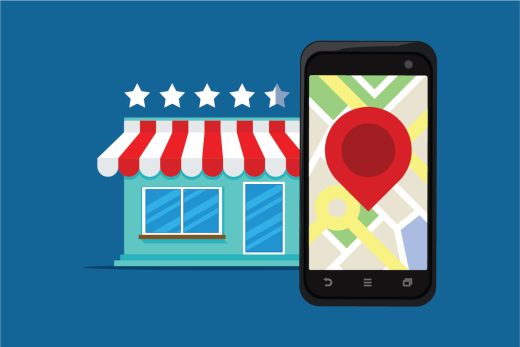Let’s be honest—how many videos have you watched today? No judgment. We’re all in the same boat. Reels, TikToks, Shorts...

Online Location Listings Management

You’re visiting a town for the first time and you’re in the mood to try something new for dinner. As you’re looking for a delicious place to indulge in nearby, where might you go first? Google? Facebook? Yelp?
It’s been found that in 2017, 97% of consumers read reviews for local businesses. As the consumers turn more to the validation of online reviews, this develops a key finding. People are seeking online location listings to serve as their directory.
For localized search, businesses must capitalize on the opportunity of maintaining their business listings online. By creating a wide presence through business listings, you can build a significant amount of trust. An individual visiting a town wants to hear the BEST qualities of a business, and if they’re left in the dark with no such listing, it could be too late. Consumer review data is highly influential.
Consumers are becoming savvier with their review choices. For instance, a Google Business listing might be the first point of reference followed by a Yelp or Bing listing. Information available on these listings are being pulled by data aggregation to help sustain helpful tips such as special hours and other available digital platforms to check out. Infogroup, Acxiom, Neustar, and Factual are the 4 major data aggregators that help fuel local business listings and keep information consistent across directories.
Consumer reviews are becoming the streamlined voice of brands. From online to offline, their recommendations, photos, and ratings are providing a peer-to-peer vision. They incorporate experiences unlike any other and will provide valuable information to people when they are looking for the “best”.
Facebook and Google are seen as the elite in localized search queries due to their methods of connecting with users. Facebook recently relaunched their ‘Events’ app as ‘Facebook Local’ which provides a new way of discovering local businesses, events, and other highlights. Local listings are nothing new to Facebook either, considering their amount of data on behavior, location, demographics, and specific interests. The competitor, Google, provides an equally massive amount of information pertaining to businesses, events, and other attractions through consumer data. The discoverability of your business information, images, and reviews are imperative on both Google and Facebook.
I recently visited Madison, Wisconsin for the first time and was not familiar with their local food scene. Right as I was nearing the downtown area, I conducted a localized search through Google, with the keywords “local Madison restaurants.” I was provided an in-depth geo-targeted list of great options via Google and Yelp. Filtering through the various ratings and reviews, I chose a place solely on the peer reviews and the images of that location those users shared. That’s the power of consumer reviews.
Online reviews are increasingly becoming an integral part of the consumer’s buying decisions. In a Local Consumer Review Survey conducted by BrightLocal, it was found that 85% of consumers trust online reviews as much as personal recommendations.
Every brand’s localized strategy differs, but there’s one thing set in stone. Online location listings are a growing, beneficial factor in driving traffic through the doors. They build a very competitive edge into persuading a consumers’ decision-making process.
Here’s a quick checklist of questions for your online location listings:
- Have you claimed your business listings if they’ve already been formatted through automation?
- Do your listings contain all up-to-date information such as hours of operation, phone number, website information, photos of products/services and industry tags?
- Have reviews been properly responded to?
Create your business account on Apple Maps, Google My Business, Yelp, and Bing.
Written by Brett Gauger
More of our thoughts
Culture isn’t something written on a wall — it’s something you feel the moment you walk through our doors or jump on a call with our team.
The A-Team headed southwest to attend the Restaurant Leadership Conference and join industry leaders from across the country.


